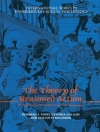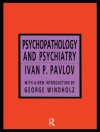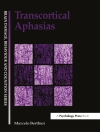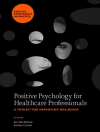A primer on brain functionality as it relates to therapeutic work.
This book presents an overview of the latest theories of affect regulation and focuses on how these theories work in clinical settings and how therapists can be taught to implement them. The notion of teaching and learning will be extended by the theories themselves—the author presents methods of education that enact the theories being taught.The book is divided into eight chapters, each one highlighting a particular structure or related structures of the brain. Suggestions for learning how to clinically apply the neurobiological/neuroanatomical information are offered. What is so unique about this book is that the bulk of the chapters are clinical dialogue, accompanied by neurobiological commentary. Thus, readers can see for themselves, during the course of parts of sessions, just how a “neurobiological outlook” can inform therapeutic understandings of what clients are doing and saying. The result is a very user-friendly learning experience for readers, as they are taken along a journey of understanding various brain systems and how they relate to psychotherapeutic principles.
Elegantly bridging the gap between the academic and clinical domains, this book is essential for anyone interested in the application of neurobiological principles to psychotherapy and wishes to learn about neurobiology without feeling overwhelmed or intimidated.
Giới thiệu về tác giả
Allan Schore, Ph D, is on the clinical faculty of the Department of Psychiatry and Biobehavioral Sciences, UCLA David Geffen School of Medicine, and at the UCLA Center for Culture, Brain, and Development. He is the recipient of the American Psychological Association Division 56: Trauma Psychology ‘Award for Outstanding Contributions to Practice in Trauma Psychology’ and APA’s Division 39: Psychoanalysis ‘Scientific Award in Recognition of Outstanding Contributions to Research, Theory and Practice of Neuroscience and Psychoanalysis.’He is also an honorary member of the American Psychoanalytic Association. He is author of three seminal volumes, Affect Regulation and the Origin of the Self, Affect Dysregulation and Disorders of the Self and Affect Regulation and the Repair of the Self, as well as numerous articles and chapters. His Regulation Theory, grounded in developmental neuroscience and developmental psychoanalysis, focuses on the origin, psychopathogenesis, and psychotherapeutic treatment of the early forming subjective implicit self. His contributions appear in multiple disciplines, including developmental neuroscience, psychiatry, psychoanalysis, developmental psychology, attachment theory, trauma studies, behavioral biology, clinical psychology, and clinical social work. His groundbreaking integration of neuroscience with attachment theory has lead to his description as ‘the American Bowlby’ and with psychoanalysis as ‘the world’s leading expert in neuropsychoanalysis.’ His books have been translated into several languages, including Italian, French, German, and Turkish.












